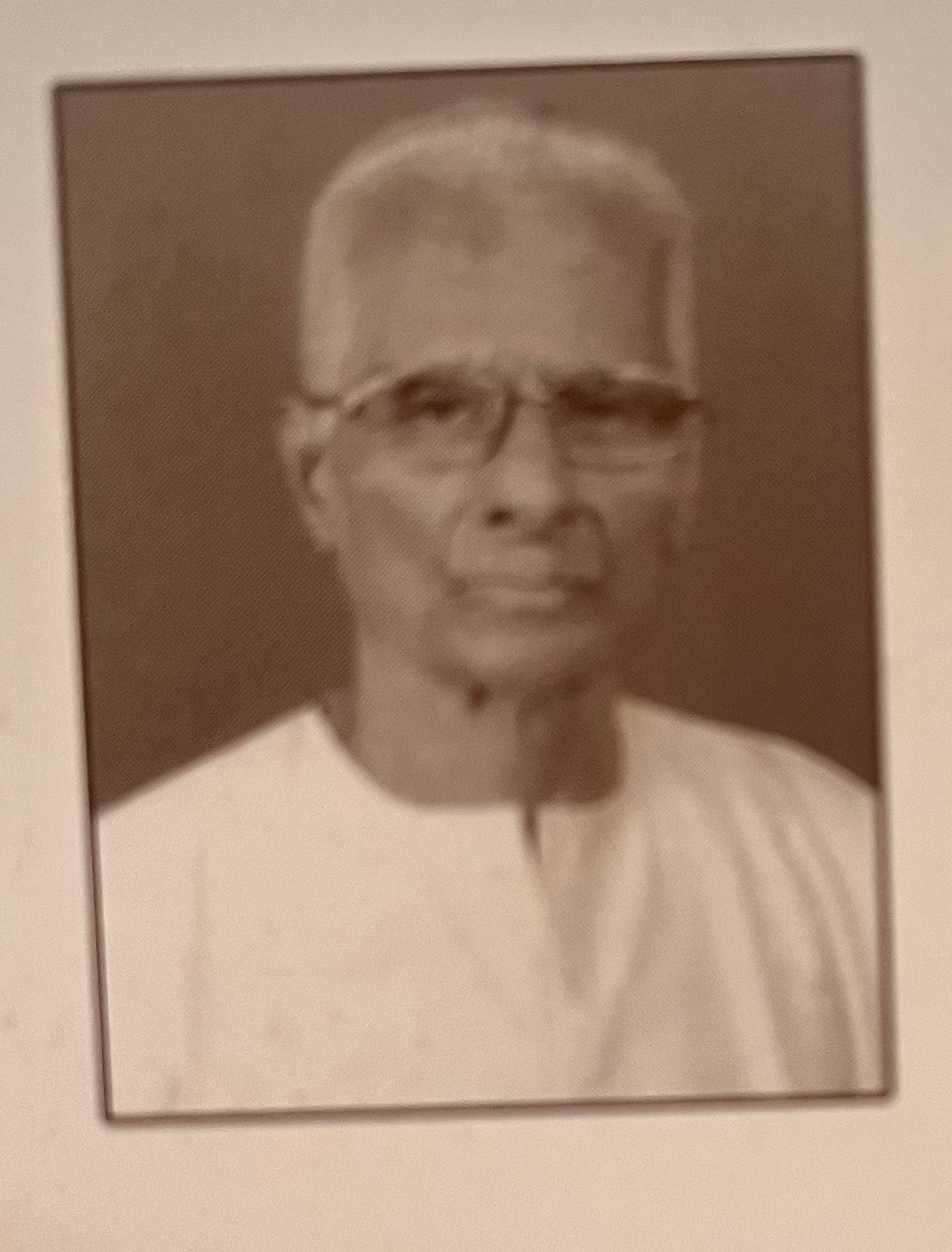Of Bunt Hoteliers: The Economics of Generosity and the Grammar of Pride
- SSN Shetty

- Apr 9, 2025
- 7 min read
Updated: Apr 15, 2025
The saga of Bunt hoteliers is not merely a tale of migration or economic endurance—it is a choreography of inherited behaviour, etched into institutional memory and shaped by cultural instinct. Among the matrilineal Bunts of Karnataka’s coastal belt, hospitality transcends industry. It is legacy. Pride. Karmic grammar. What we call Bunterna Gatth.
Take my grandmother’s maternal uncle, known simply as Byculla Veerappa Shetty. A man of ritual and order, he sold his inheritance and migrated to Bombay to start a hotel in Byculla. He stood about 5’6”, made to look even smaller next to his towering nephew in an old family photograph. But height wasn’t the measure of his ambition. He was the first to greet every new migrant from the town the family came from, opening his doors without hesitation. He died long before my time, and my grandmother—one of eight siblings—remembers only fragments. The family is large, so my understanding of him comes through her and her brothers, pieced together like folklore.
His journey wasn't unique—his nephews followed. His niece, my grandmother, was married to the son of a hotelier. My grandfather’s people had also migrated from Udupi to Bombay for the same reason: hospitality. When I asked my grandmother why anyone would leave land behind, she shrugged: “Land Reforms Act. Opportunity.”
Simple. But for those raised just outside the inheritance of these choices, it isn’t simple—it’s behavioural.
I didn’t interview hoteliers. I observed them—from behind menus, counters, and conversations. To study them too closely is to alter their behaviour. So I kept quiet and watched. I even deployed friends—spies, really—trained with the sharp observational lens I’d borrowed from Kautilya’s Arthashastra. I watched interviews, body language, and Instagram reels. Because if I told them what I was attempting, their behaviour would change.
Even today, if you walk into a Bunt-owned restaurant, you’ll feel something different. I remember arriving in Malta late one night with my girlfriends, hungry and desperate, only to be turned away from multiple restaurants. Lights on, doors closed. That would never happen at a Bunt hotel. They will feed you. Not because it’s policy, but because it’s karmic. In Tulunadu, there’s an old belief: turn away a goddess in disguise and suffer misfortune. Even the most atheistic Bunt fears that curse. Behavioural economists might call it a loss-aversion heuristic. For the Bunt hotelier, it’s muscle memory.
Their staff? Pushy—in the best way. They tell you what’s good. They check if you’re happy. If you’re not, they don’t charge you. Insist on paying, and they’ll be mildly offended—how dare you doubt their honour? And portions? Always generous. A complaint about quantity would be unthinkable. Hospitality here isn’t a transaction. It’s a philosophy. Even the obsession with quality is not about customer retention—it’s about protecting the family name and their own sense of pride.
Even their roughness is affectionate. They are frugal with pennies but extravagant with loyalty. Staff stay for decades. Walk into a Bunt-run hotel, and you might see the same cashier from your childhood—same hairline, same register, same bark.
These enterprises often run in the wife’s name, structured like silent democracies. When it’s time to expand, capital isn’t raised from outsiders—it comes from family or friends. A nephew, a son-in-law, or a brother-in-law is placed in positions of power at these new locations. This isn’t nepotism—it’s trust economics. In high-risk, high-reputation ventures, kinship is the most reliable insurance.
But even trust can curdle under pressure. Beneath the warm thrum of loyalty and legacy, there run colder currents—where affection turns transactional and ambition teeters into betrayal.
The industry has its shadows. I've heard of legal battles that stretch for years—siblings fighting over hotel ownership, a parent’s will torn apart in courtrooms lined with lawyers who know every loophole in succession law. Some disputes don’t make it to court. There are hushed whispers—tales exchanged in lowered voices—of violent ends, where ambition may have met opportunity under sinister circumstances. Alleged ugly killings, sudden disappearances, and assets shifting hands overnight are spoken of not as certainties but as eerie possibilities hovering at the edges of empire-building. Alleged, yes—but chilling all the same.
There are stories, told cautiously, of rituals performed not just for blessing but for dominance. Businessmen fast for weeks, walking barefoot to distant temples or hosting elaborate poojas where the cost of the offerings is matched only by the intensity of their prayers. They do it not just for divine grace—but to outwit rivals, ward off jealousy, and harness metaphysical advantage. In Tulunadu, it’s not uncommon to hear that a rival’s failure began with a curse or that an empire was protected by black magic cloaked in ritual.
Over time, the landscape changed. One-location eateries became hotel chains. Sai Radha and Goldfinch have forayed into real estate. Sons of hoteliers now innovate with fine dining. The Goldfinch Hotels heir, Gaurav Shetty, curates his restaurants and cafes. Sanadige, one of their ventures, is so beautifully curated that you’ll be left wanting to return. Ramee Group’s Rajit Shetty has taken to Instagram to explain why one cocktail is his favourite—and to convince you to try it. Sai Radha’s Siddharth Shetty (again not a conventional hotelier), an architect, turned a heritage resort into Kapu’s most sought-after wedding venue. These men aren’t MBA-toting execs detached from ground reality. From my spies, I’ve heard that they toil. They’re hands-on. They cannot be boxed into the spoiled brat tag.
Then there are the quiet hotels—not run by hoteliers but built to support ecosystems. Take RN Shetty, for instance. He didn’t run hotels for profit in the conventional sense. He built them in Murudeshwar to serve the pilgrims, tourists, and workers who powered his broader vision of infrastructure, education, and religion. These aren’t family-run in the classic way. They exist to serve a larger ambition.
But to understand the full story, you have to include the women.
Bunts are matrilineal. Legally, the land, the capital, the assets—they often begin with the wife. Some women brought land as part of badhi (dowry). Others pawned jewellery to cover staff salaries during COVID-19. That jewellery? Not just adornment. It was security. Liquid capital. And in more cases than we can count, it was her gold that kept the doors open. For an aspiring hotelier, marrying a woman with land or gold wasn’t romantic—it was strategic.
Women also operated the soft power grid. Their presence at housewarmings, funerals, weddings, kitty parties wasn’t just social—it was brand management. When the co-owner shows up, word spreads. In a pre-digital world, they were the billboard.
And yet, in the top 3%—the ones running five-star chains—daughters often remain invisible. Daughters-in-law too. On paper, the matrilineal structure endures. But in practice? Matriarchal control at the upper tiers is still elusive. That contradiction deserves study.
Still, the children return. Some with MBAs, others with food-tech startups. Some reinvent the family legacy through branding and automation. Others branch into adjacent fields—logistics, franchising, cloud kitchens. They are groomed to lead, not squander. They bring in systems but honour rituals. They might pitch on Zoom but still return to light lamps on opening day.
And then there’s caste pride. Gatth. Whether it’s the towering K. Prakash Shetty, the mediocre heighted Sudhakar Hegde, or the compact but sharp Byculla Veerappa, Bunterna Gatth isn’t about physical size—it’s about stature. Reputation. A sense of being above pettiness. Among the Bunt professionals—doctors, engineers, bureaucrats—hoteliers are sometimes viewed through a hierarchical lens, often dismissed as merely service providers. Yet this perception is layered. The same community that elevates doctors and IAS officers can scoff at the grease-stained hands of a man running a chain of hotels.
Still, those very hotels might be the financial engine fuelling scholarships, temple renovations, and community events. I’ve heard whispers of such contradictions at weddings and death rituals—where prestige is silently negotiated. The hierarchy exists, but so do those quietly subverting it. Their industry, historically linked with vice and low-status labour, was once a source of embarrassment. But that critique fades in the face of their impact. While a professional might educate three children, a hotelier educates ten.
Nearly 87.3% of the hoteliers I observed referenced divine blessings for their success. Siri, Ullalthi, and Kapu Marigudi—the deities of Tulunadu—are embedded in their business logic. Not superstition. Ritual. Memory.
Some of these hotels, in the early years, were hangouts for Bombay’s underworld. Protection money was common. Some hoteliers paid. Some resisted. All survived. Because they knew their business was never just food—it was ritual, reputation, resilience.
So the next time you walk into an Udupi or Mangalorean restaurant, don’t just taste the dosa. Feel the grammar of generosity in the chutney. Recognise the economics of loyalty in the way the waiter insists you try something new. Observe the karmic logic behind the free refill of sambar.
Because in a Bunt hotel, hospitality is not a job. It’s an inheritance of gesture and grit, a choreography of pride passed down like heirloom bangles—sometimes heavy, sometimes gleaming, always worn with intent.
Disclaimer: There are exceptions to this study of hoteliers. Personal stories do not invalidate professional endeavours. These are observations of a community and not about any particular person.
Disclaimer 2: My research was funded by a grant and not any of the Bunt hoteliers, so the positive things I say - I mean it. The negative things I say - I mean it, too.
P.S. Some Bunt owned restaurant you must try - personal recommendations
The dosa at Madhuvan - Moti Mahal or AJ Grand
The neer dosa at Hotel Sadanand on the Surathkal Highway
The anjal rava fry at Sanadige - Chef's kiss
The chicken ghee roast at Ujwal, Sanjaynagar - this would be my last meal ever
The prawn ghee roast at Udipi Residency - my grandfather's favourite hotel
The Anjal Masala at Pallavi on the Padbidri Highway
The chicken at Pulimunchi that used to be in Sadashivnagar- did they move?
The marwai pundi at Kudla
The Chattri Kabab (which I last ate at age 9) at Punja International
The vegetarian food at Sai Palace - my uncle swears by this
As for caterers, Parika Caterers are my all-time favourite!
P.P.S. The hoteliers I have named in this article, I have the greatest respect for. The master's students that have traced their lives have done a good job at observing behaviour only in their professional capacity not personal.
P.P.P.S. The hoteliers I have named are popular or public figures. I studied over 1126 hoteliers and restaurant owners. The information on the ownership of hotels is publicly available information. There's a lot of anecdotal evidence in how hotels or restaurants have started. Not all of these 1126 are of the same scale. Should you wish to read my academic paper on this, wherein all names are anonymised, please reach out.






Ao precise and beautifully written about t our bunt hoteliers
Our bunter na gath ..superb